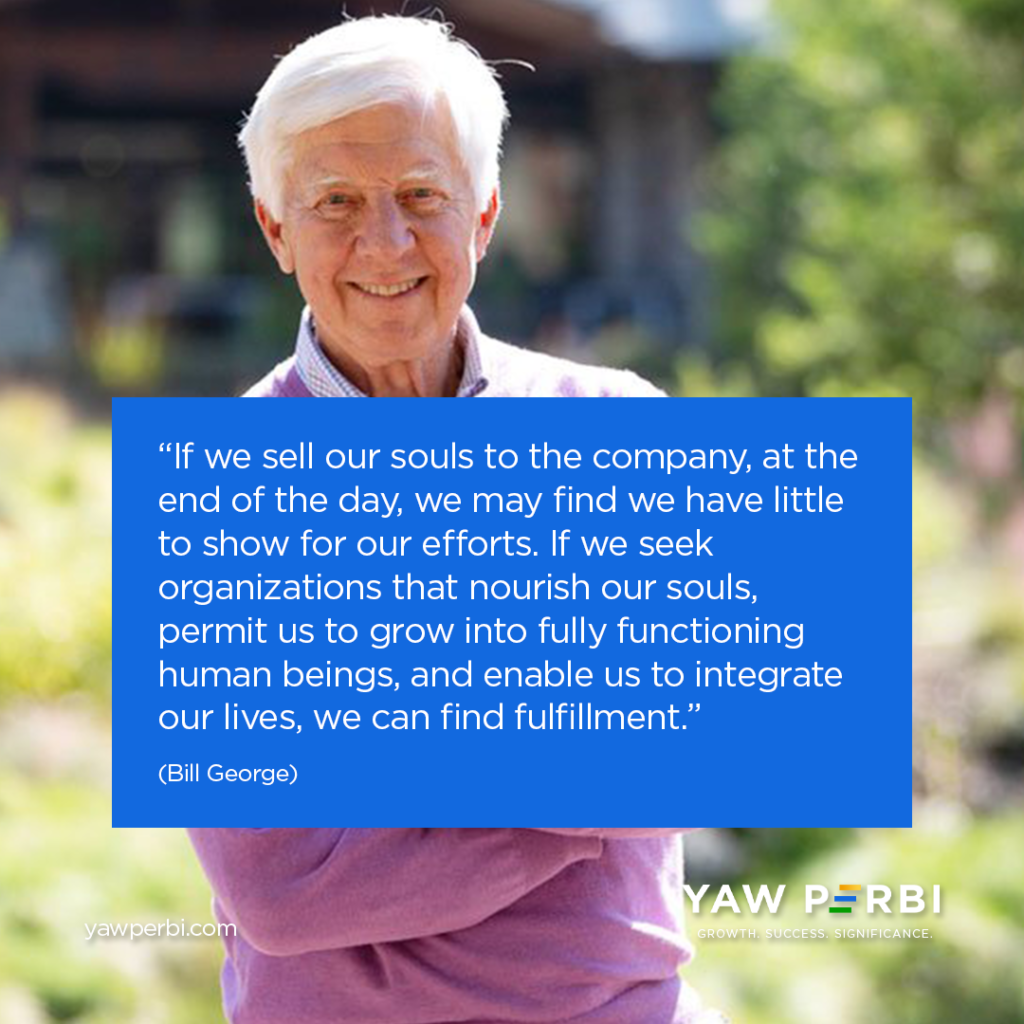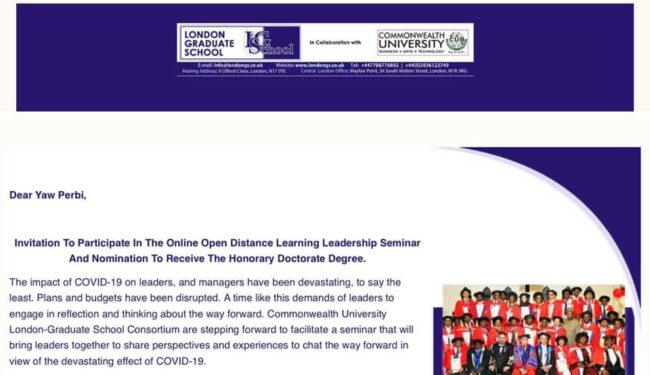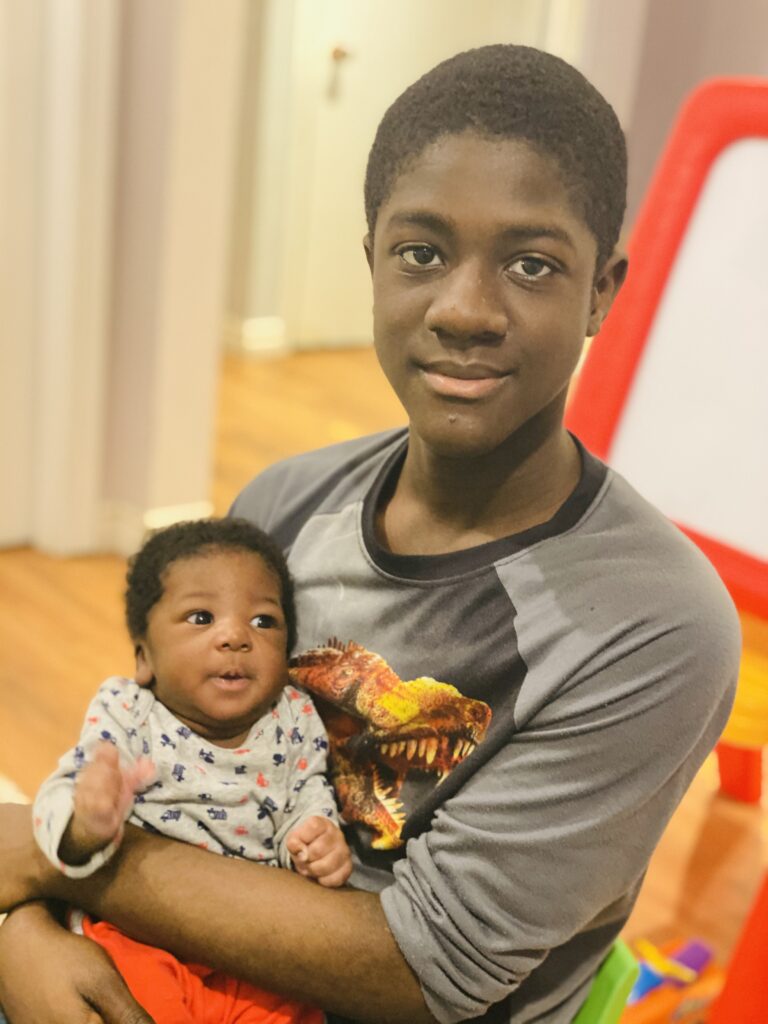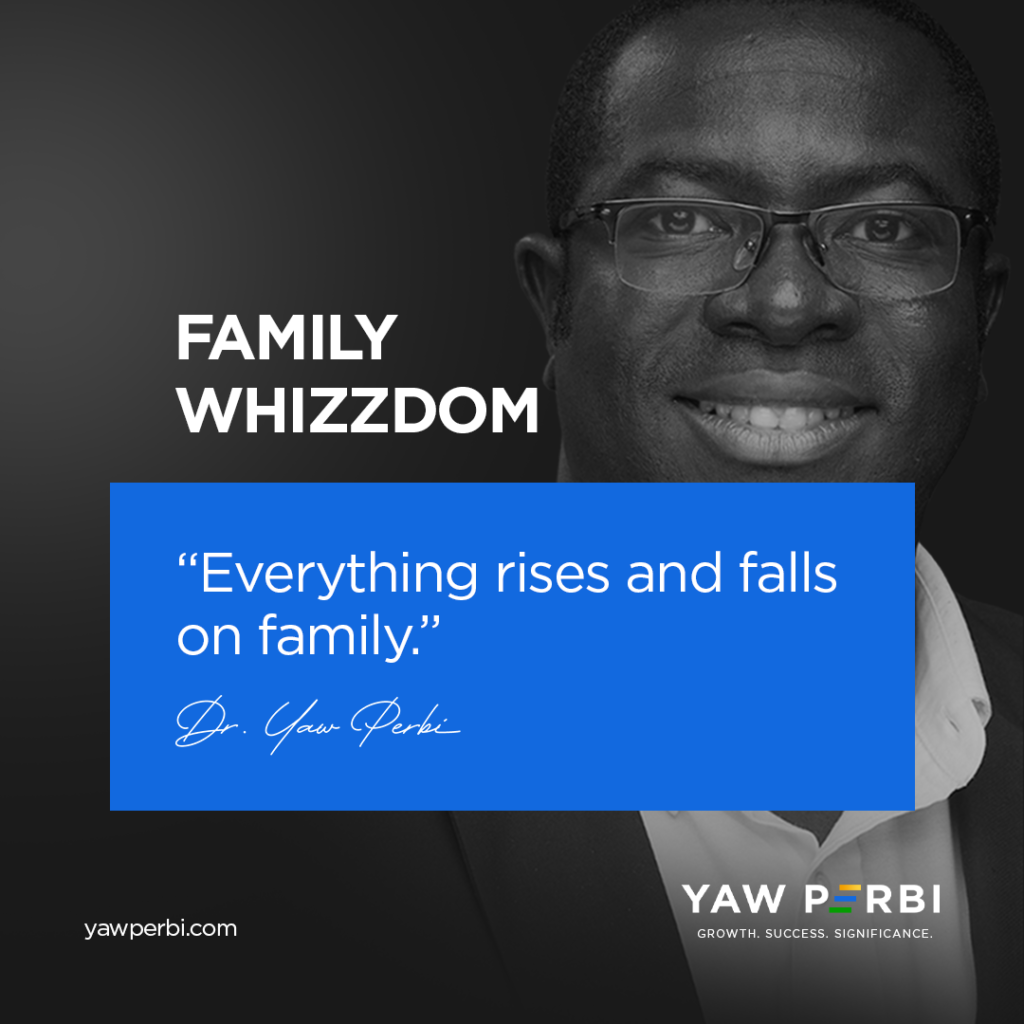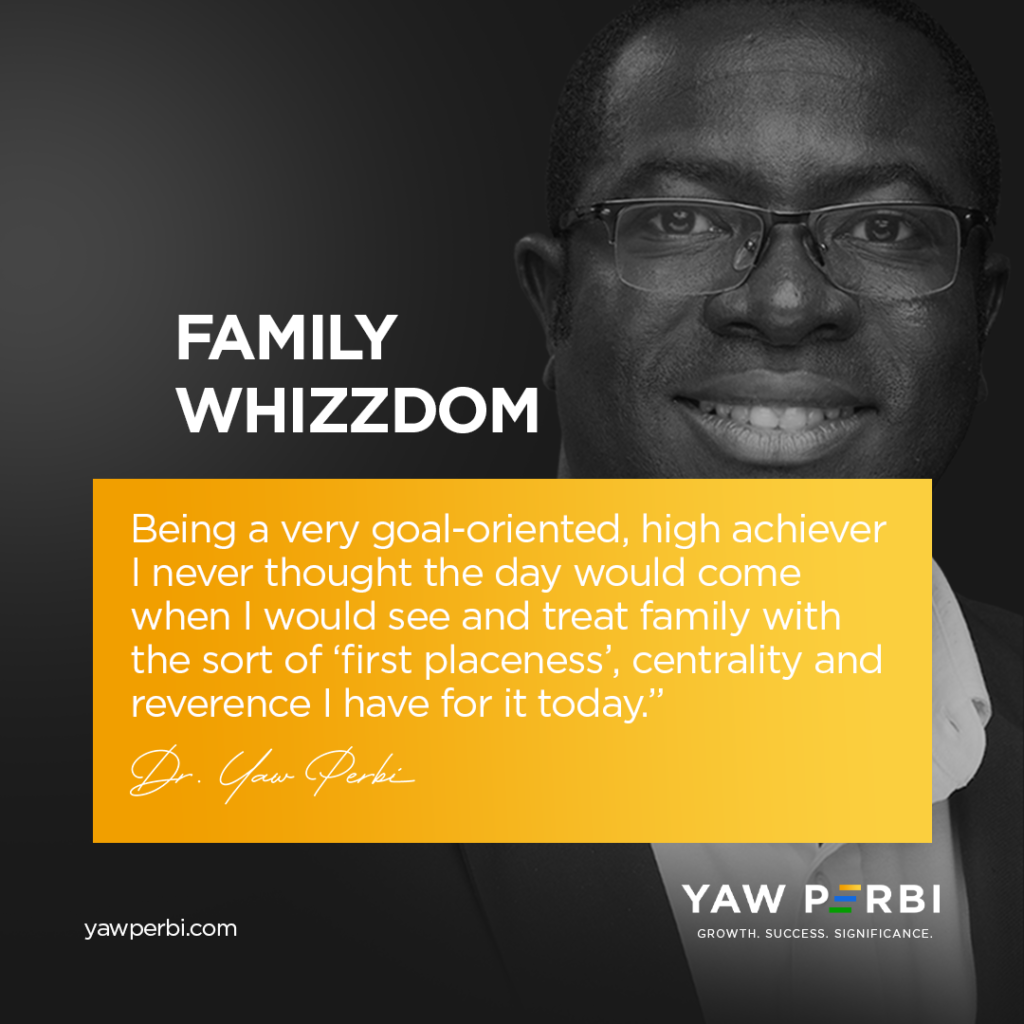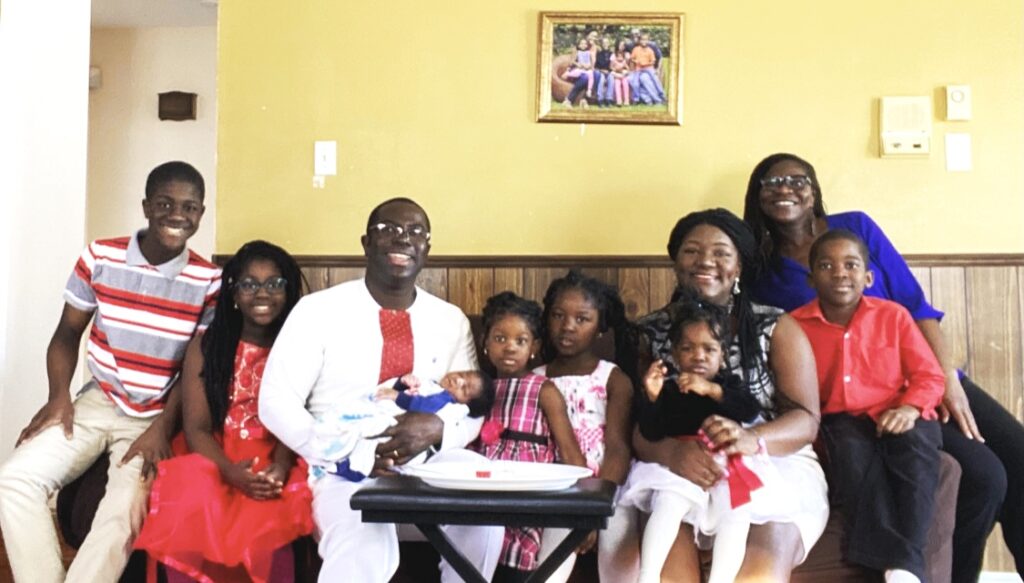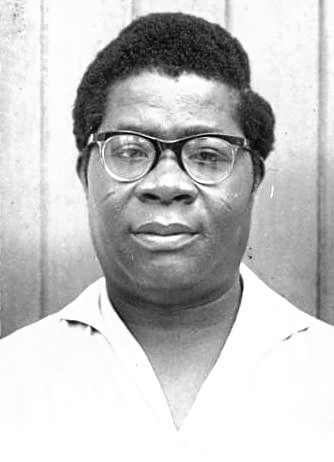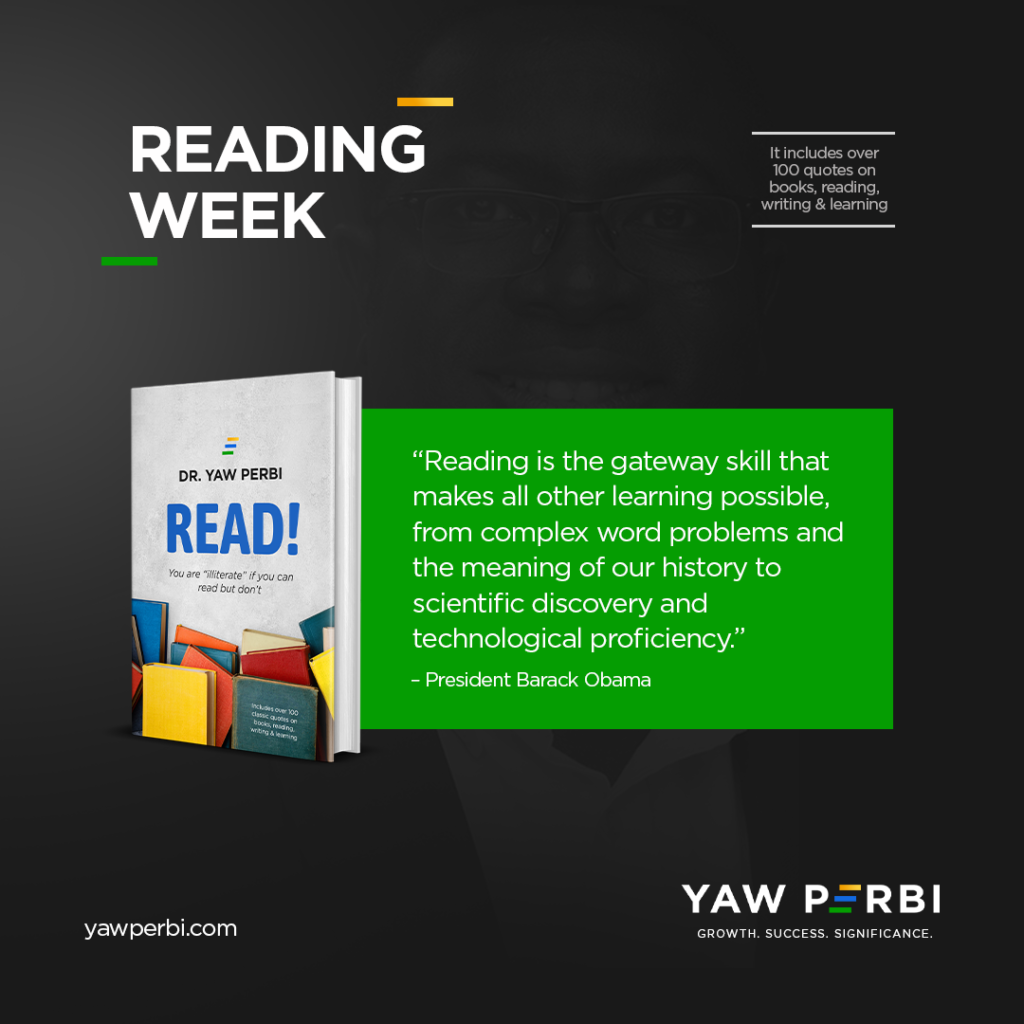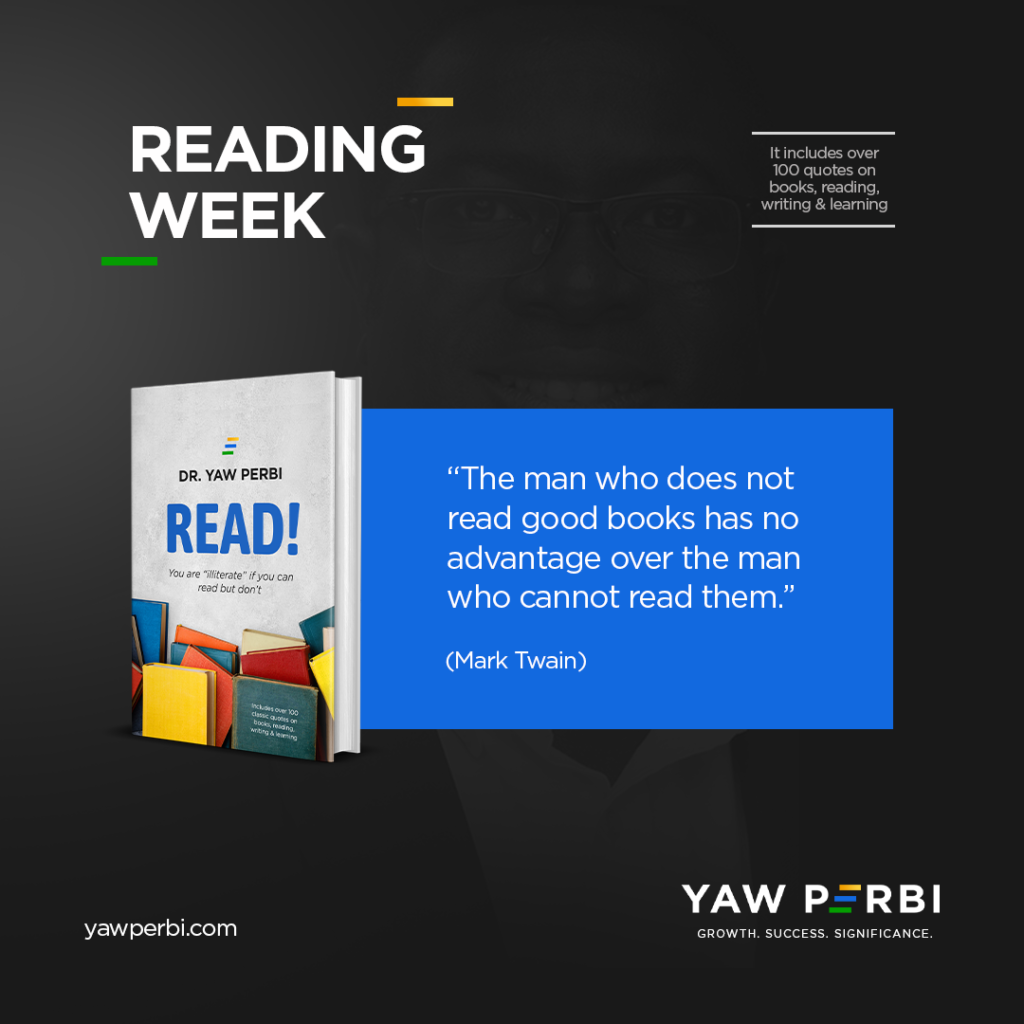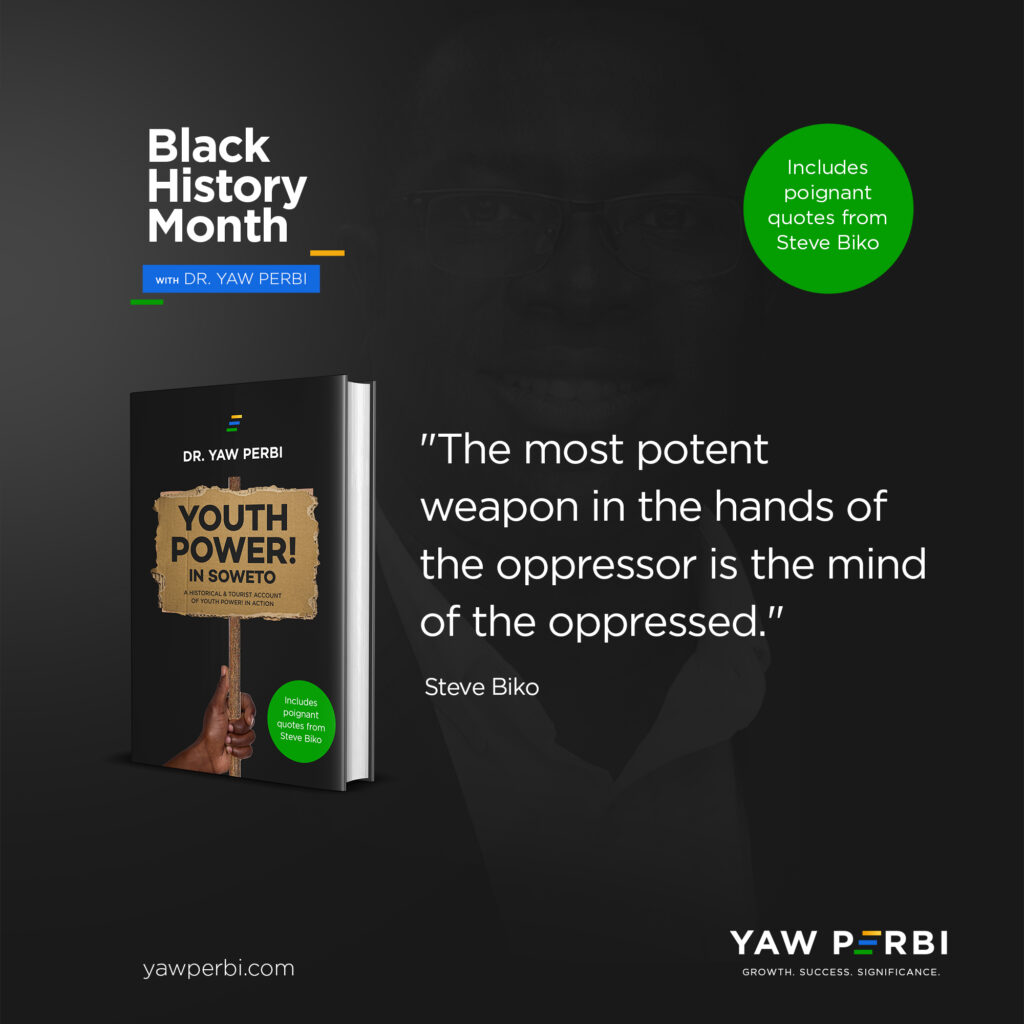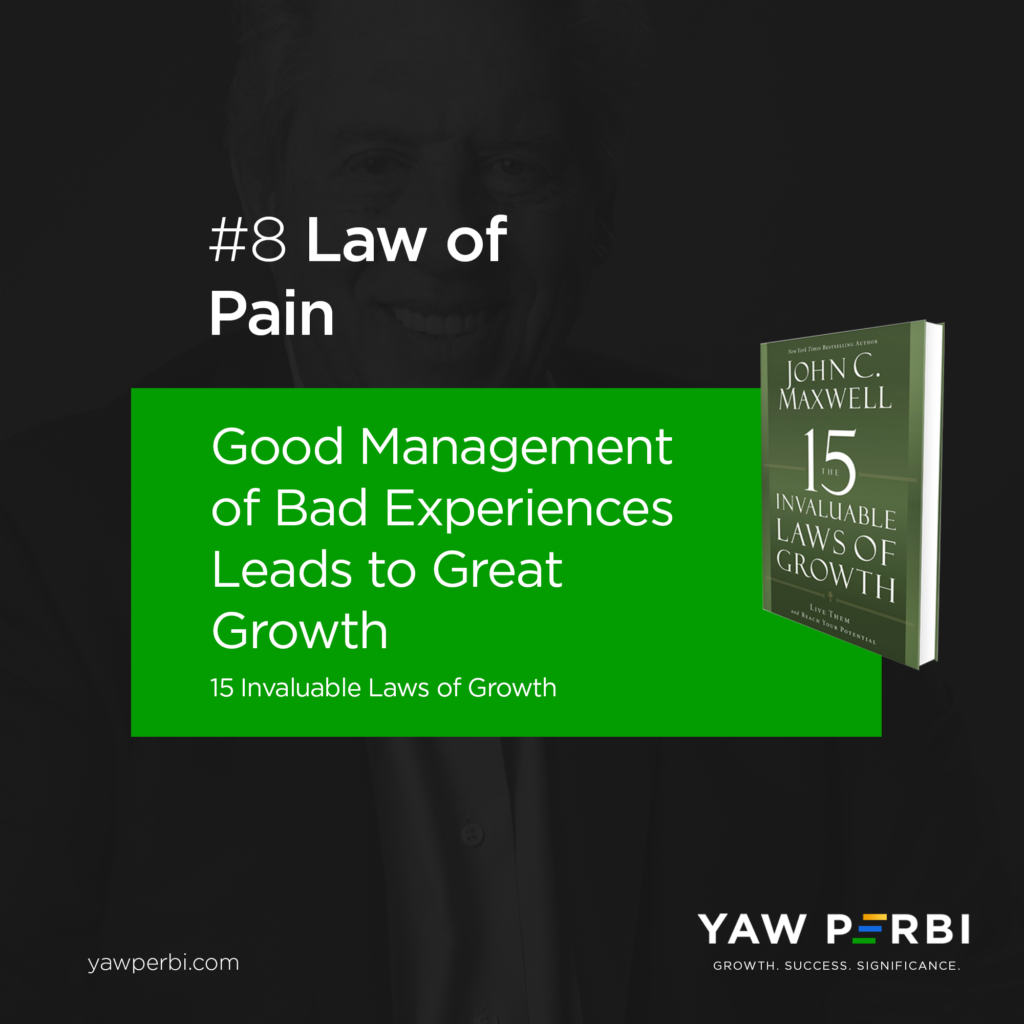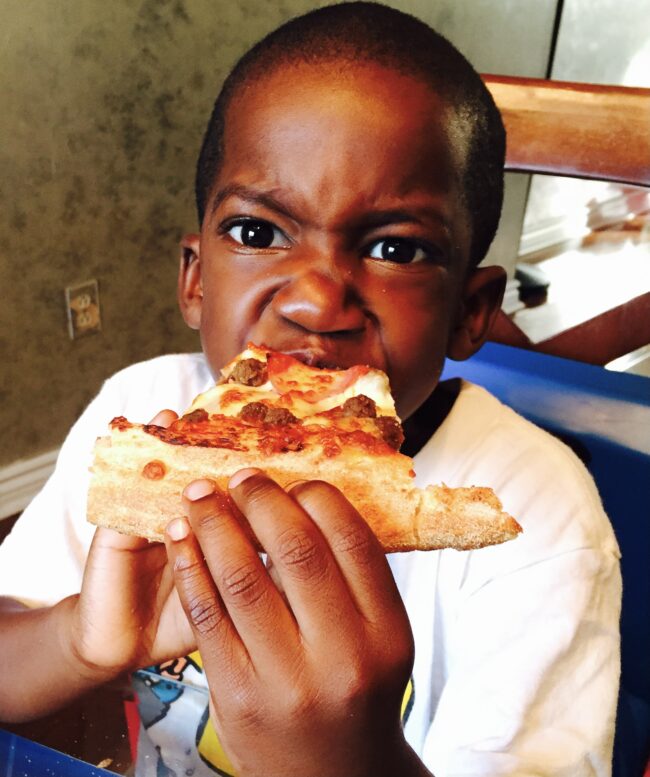
Google Pizza
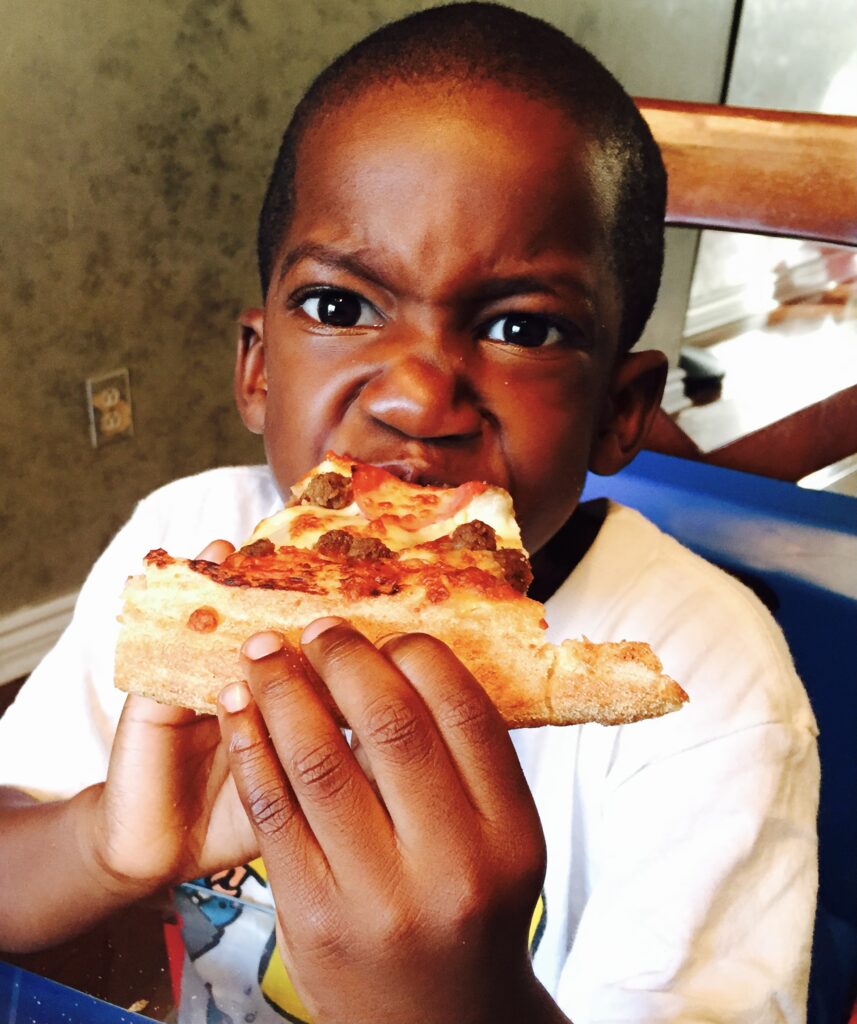
This little man might never ever speak to a real human being to order his favourite pizza by the time he’s an adult.
Artificial Intelligence (AI) is exciting and scary at the same time! Here’s a satirical example (there are many variations online) about what should’ve been an ordinary exercise ordering ordinary pizza on an ordinary day.
Hello! Is this Gordon’s Pizza?
No sir, it’s Google’s Pizza.
Did I dial the wrong number?
No sir, Google bought the pizza store.
Oh, alright – then I’d like to place an order please.
Okay sir, do you want the usual?
The usual? You know what my usual is?
According to the caller ID, the last 15 times you’ve ordered a 12-slice with double-cheese, sausage, and thick crust.
Okay – that’s what I want this time too.
May I suggest that this time you order an 8-slice with ricotta, arugula, and tomato instead?
No, I hate vegetables.
But your cholesterol is not good.
How do you know?
Through the subscribers guide. We have the results of your blood tests for the last seven years.
Maybe so, but I don’t want the pizza you suggest – I already take medicine for high cholesterol.
But you haven’t taken the medicine regularly. Four months ago you purchased from Drugsale Network a box of only 30 tablets.
I bought more from another drugstore.
It’s not showing on your credit card, sir.
I paid in cash.
But according to your bank statement you did not withdraw that much cash.
I have another source of cash.
This is not showing on your last tax form, unless you got it from an undeclared income source.
Enough already! I’m sick to death of Google – Facebook – Twitter – WhatsApp and all the others!! I’m going to an island without internet, where there’s no cellphone and no one to spy on me …
I understand sir, but you’ll need to renew your passport … it expired six weeks ago!
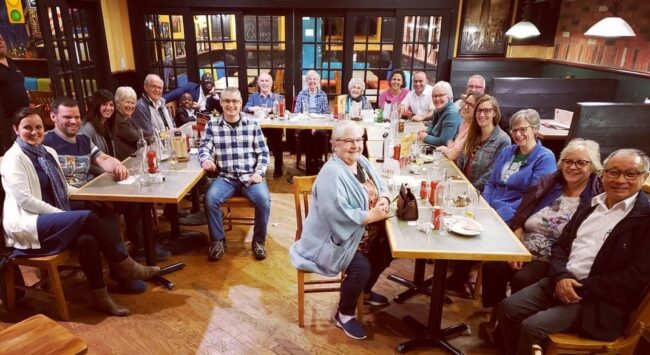
Inspiring Practical Examples of the Integrated Life
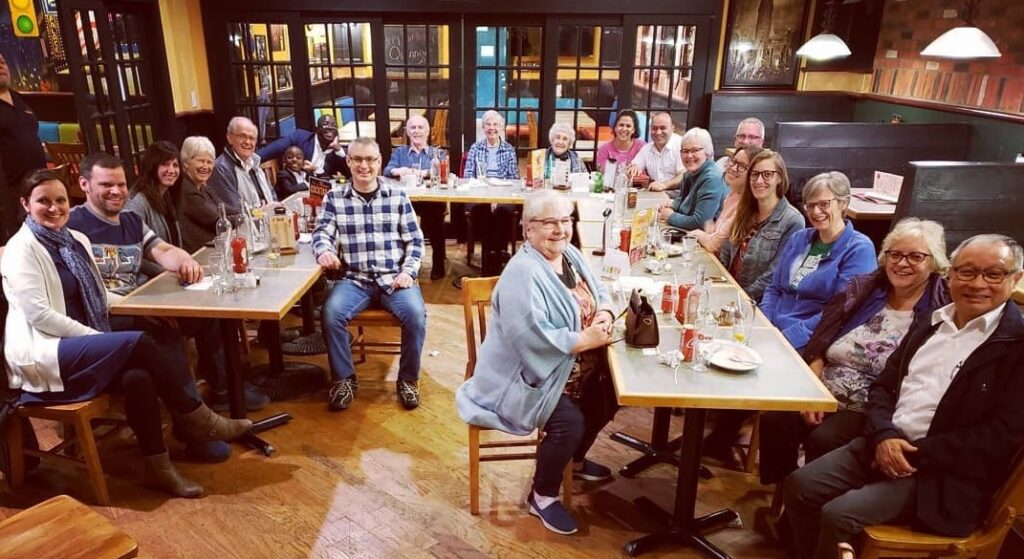
Dinner with the organizing team of an annual conference in Halifax, Nova Scotia (Canada) at which I was a plenary speaker. If you look closely at the back left you will find my then seven-year old son and I. We did the 2,500km trip by road together.
After my last blog on Why I strive for work-life integration and not work/life balance, some got it and said, “important distinction.” Others thought it was just semantics, just a different choice of words but saying the same thing. I beg to differ.
Here’s another attempt to distinguish one from the other: work/life balance (apart from seeming to pit work against life) is the attempt to distribute time, energy and other resources equitably to all four buckets of life to ‘tick all the boxes’. On the other hand, work-life integration is radically different because it harnesses the power of all four buckets, making other buckets better by the power of other buckets. And it is living in such a way that one doesn’t have to hide the other buckets (say, on LinkedIn), pretend they don’t exist or be different things to different people in the different buckets. I’m quite certain a few poignant examples below may make the distinction clearer.
FACEBOOK AND FAMILY
Who doesn’t know about FaceBook and its 2.7 billion users. That number is the combined population of China and India, the two most populous nations in the world. 2.7 billion is more than twice the population of the entire continent of Africa! I was fascinated to learn that as founder/CEO, one of Mark Zuckerberg’s attempt at the integrated life in Facebook’s early days was to host FaceBook strategy sessions at his home on Monday evenings. And for Facebook’s COO Sheryl Sandberg, instead of missing dinner with her family, she would bring her children into the office. Here’s her testimony: “Facebook is incredibly family friendly, so my children were in heaven, entranced by pizza, endless candy, and the huge pile of LEGOs the engineers shared with young visitors. It made me happy my kids got to now my colleagues and vice versa” (George 2015, 173). I don’t know everything about FaceBook’s corporate culture, but these right here are great examples of the integrated life at FaceBook.
I’m proud of Databank in Ghana that has created a nursery in the workplace for nursing mothers as well as a quiet time room for staff to go and nourish their spiritual lives, especially after rushing from home at dawn in order to beat the crazy Accra traffic. These are laudable examples of the integrated life in corporate circles.
PERBI PRIDE
I love lions. I call my children cubs; not kids, hence we are the Perbi Pride. Last week, I handed over to the next CEO of ISMCanada after being at this role for eight years. One of the things I recalled at the handing over ceremony (and nearly everyone remembered) is how not long after I took the role I travelled almost the entire stretch of Canada (the second widest country on earth!) to get to personally know the staff and listen for the pertinent issues from the ground. What I haven’t told you yet is that as a family we decided to integrate our lives with my new work by making this a fun family trip. We rented a minivan and spent 30 days travelling from Montreal (on the east coast) to Victoria (beyond Vancouver) in the west. It was beautiful to see the different types of Canadian landscape and wildlife. Because our children our homeschooled, such opportunities are precious as ‘all of life is school.’ By the time we got back home we had clocked 13,000km and had enough geography, history, sociology etc. to last a lifetime! That is one of the best examples of the integrated life we’ve ever had as a family. Family did not get in the way of work or vice versa. We made both feed off each other and were the richer for it.
Over the last couple of years, I have adopted a tradition of travelling with one of the older four children. Just one, to make them feel special and have a one-on-one time with daddy. Don’t forget these are work trips for me and fun trips for them. After doing a Philadelphia and Washington DC road trip with our then four-year old she insisted upon returning home that “I’m Daddy’s travel buddy’ much to the chagrin of the others. I’ve been far from perfect in integrating family and work but I knew we were doing something right when my children got so used to the ISMCanada world that one day our then seven-year old son asked, “Will I become president of ISMCanada when I grow up?” Almost as if it were a family inheritance.
I’ve always worked from home over the last 8 years as CEO (or from an airport/airplane)–way before the rest of the world was forced to by the Covid-19 pandemic. Working from home and homing from work has its pros and cons but it certainly has helped more than harmed my work-life integration.
IMPACTING THE WORLD FROM WITHIN–‘AN INSIDE JOB’
In an article posted on the Harvard Business Review, author Stew Friedman rightly said that the most impactful leaders find ways “to integrate the different parts of their lives to reinforce and enhance each other.” Everywhere he looked he found successful individuals who used who they were as a person to influence how and why they worked. From Facebook COO Sheryl Sandberg (as I already shared above) through Michelle Obama to rock icon Bruce Springsteen, many influential people channel what made them a powerful person into creating a powerful product, service or project.
Take Michelle Obama, the 44th First Lady of the United States, for example. Michelle considers her daughters to be her first priority, even if this stance vexes those who would have her do more in seeking broader political and cultural change. However as Friedman rightly observes, in making sure her own children were receiving the most nutritious food possible, she began to advocate for better nutrition through the national initiative Let’s Move!. Her policies have won national and global acclaim.
One of the most impactful social enterprises in Ghana right now is the PerbiCubs Library Services, reaching 2,000 children in 200 schools. It might interest you to know that this did not start out as some mega altruistic attempt to ‘change the world’ through getting every child reading but out of our own family’s need for good, well-curated, reading level-appropriate books upon a long stay in Ghana. Whether it’s the Obamas or the Perbis, we’re running this for ourselves–we only get to scale and share with the rest of the world. If nobody signed on, we would still do it. It’s not just a job ‘out there’, it’s an ‘inside job,’ so-to-speak.
RUNNING MY FAMILY LIKE A CORPORATION
I’ve had partners complain about how their spouse is great at XYZ in the corporate world but doesn’t show even an iota of that competence or skill at home. There are those who might argue that they use ‘all of it’ out there and just want to chill and relax when they get home. While that might make some degree of sense, is it not inauthentic that who we are out there is different from who are at home? If you really believe in the power of vision and mission statements and values in your corporate world, for example, how come you haven’t couched one for your own family?
I’m learning to run my family like a corporation, in the sense of applying the things that have made organizations I’ve run succeed. Why not? Wherever two or three come together, you have an organization! I’m sure you can relate to how some of the most treasured members of your community, say church, actually are so because they bring their corporate skills to bear on the communal organization? On the flip side, I’ve also been the beneficiary of running businesses like family and seeing co-workers go over and beyond their job description and their contractual call of duty. The integrated life is the way to go.
CHOOSE INTEGRATION TODAY
“When you give your whole self to the moment, you not only benefit personally, but it dramatically impacts your business as well.” So says my mentor Bill George. The work-rest of life thing doesn’t have to be a zero sum game. Bill is right about how “Many leaders are reluctant to combine their work and family lives, but bringing the two together can lead to more productive and fulfilling lives, both personally and professionally” (173). I have seen and testify that it takes being open-minded about this work-life integration notion, hard work, creativity, experimentation, patience, much discomfort and many failures to make it work but when it does, it really does.
References
Friedman, Stewart D. 2014. “What Successful Work and Life Integration Looks Like.” Harvard Business Review. October 07, 2014.
George, Bill. 2015. Discover your True North. Hoboken, NJ: John Wiley & Sons.
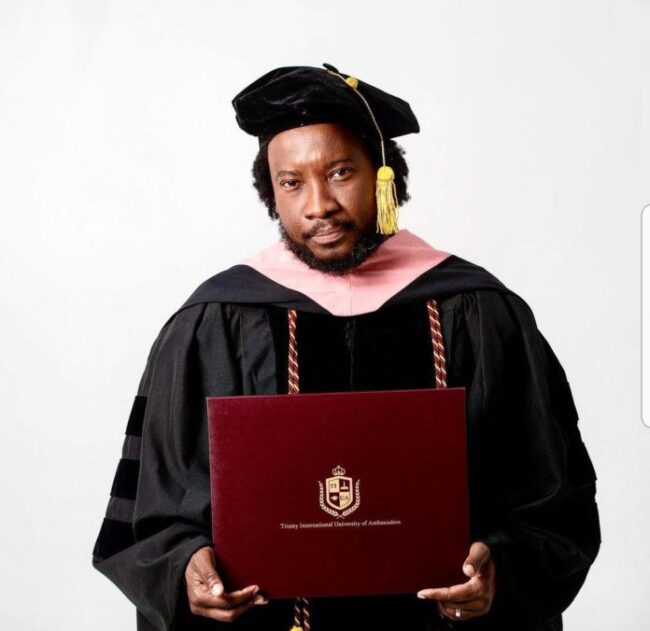
Nothing to Prove, Nothing to Hide, Nothing to Lose
Recently I received an email (partly screenshot above) announcing my nomination to receive an honorary doctorate degree. It is is possible that I would have felt more flattered and been more tempted to go after this fake degree from these fictitious institutions had I not already been a “Dr.” (medical). Coming from a family in which my grandfather was an emeritus professor and where my mother and father-in-law are PhDs in history and economics respectively, these titles don’t exactly faze us. Yet those who offer them know they are toying with very powerful human emotions, motivations and identity issues at the core of our being and have made a good business of it. As my best friend said when I forwarded the said email to him, “this has nothing to do with you; it has everything to do with business.”
Some however, including many Christian leaders, have taken the bait and gotten decorated with very dubious degrees and titles. Recently, there was a huge brouhaha over a popular Ghanaian musician based in London who was alleged to have amassed three degrees, including a PhD, within four months! Perhaps if he had even shut up, none of this would’ve become an issue of investigation and castigation setting social media abuzz but he was flaunting it and ‘praising God’ for the fake feat. The desire to flaunt it itself reveals the very identity and emotional challenges he might have that perhaps led to him to go for those inauthentic accolades in the first place.

Popular gospel singer, Sonnie Badu, has now supposedly earned the title ‘Dr’ after bagging a doctorate in Musicology and being awarded two more degrees.
The above picture of Sonnie, whose giftedness is unquestionable but his academic credentials are, was uploaded by himself on social media touting his feat. I have met Sonnie. He is a fine young man and anointed. But I can also tell you he is far from perfect; just like you and me. Speaking of Sonnie and musicology, incidentally, my grandfather was a celebrated ethnomusicologist. His work earned him many accolades including several honorary doctorates but he never used the title “Dr.” because although he had done enough original research work to deserve ten doctorates he never really formally pursued a PhD per se. Interestingly, he shot straight from ‘mister’ to ‘professor’ and was ’emeritus professor’ for the last three decades or so of his life.
This degree brouhaha touches on at least three issues: identity, purpose and authenticity.
IDENTITY
There was once a programme organized by a friend of mine. The MC got on stage and introduced a certain pastor to come up and offer a prayer. He inadvertently introduced him, with no malice, as Mr. XYZ. XYZ comes up, grabs the mic and makes a correction, “I’m not Mister, I’m Pastor.” That wasn’t all; it gets worse. Later he clears his throat and amends his correction saying something like, “In fact, I’m not Pastor, I am Reverend.” Ahem. Wow! What a shock, what a shame.
But lest I come across as holier than thou, remember I told you that the people offering fake degrees know exactly what they are massaging in us: the ego. I can tell you that as a medical doctor myself there are many times when people address me in speech or in writing as ‘Mr.’ and I have a natural gut reaction to get offended, said in my head something like “do you know who you’re talking to?” and yearned to correct them. There’s a part of me that even justifies it thus: “mehn, but you earned it.” That, my friend, is not the authentic self.
We need not, and indeed should not, root our identity in external things like what we wear, how much we earn, what degrees or title(s) we have acquired. Anything that man can give you, man can take away. Let’s not root our identity in any such thing. And you would think that supposed men and women of God would know better and root their identity in nothing less than Christ himself.
PURPOSE
You may have ‘more degrees than a thermometer’ and still not accomplish your God-given purpose. There are some without degrees at all and yet have made much more impact in the world than those with many letters behind their names. Your purpose in life determines the vehicles and tools you need to use. It’s strange to make the acquisition of vehicles and tools our primary objective when one hasn’t first sat down to evaluate if that is what they need to get done the job they came on earth to accomplish. It’s about dreams, not diplomas and degrees.
Did you read about the recent brouhaha over the apparent insistence of Jill Biden, wife of the current U.S. president, to be called “Dr” ? It’s really been going on for at least a decade now: “Hi, I’m Jill. Jill Biden. But please, call me Dr. Biden.” The December 2020 op-ed by Joseph Epstein in the Wall Street Journal implored Jill Biden to “think about dropping the honorific, which feels fraudulent, even comic.” Personally, I think the essence of what Epstein was trying to say became lost in what became an embroilment in sexism. The real question should be: does being ‘Dr.’ make Jill a better educator (that she’s been for decades) or not? Everything else is secondary; even tertiary.
AUTHENTICITY
This degree saga leaves a lot to be desired when it comes to authentic leadership. It speaks to the core of authenticity. Authentic leaders have:
- nothing to prove–a matter of humility (not try to project self worth)
- nothing to hide–a question of integrity (no playing of games but totally transparent)
- nothing to lose–a matter of simplicity (not strive for social image or popularity).
As you might have noticed, humility, integrity and simplicity as an acronym spell HIS. This is particularly instructive to Christian leaders. Those of us at the Third Lausanne Congress on world Evangelization in Cape Town in 2010 were passionately exhorted by theologian Chris Wright to be God’s saints, Christ’s people, HIS people of humility, integrity and simplicity.
NOT SO WITH YOU
Again, especially for Christian leaders, the primary power base of an authentic (wo)man of God is spiritual power—not positional or personal power. Others may go that route but Jesus was very clear to his followers who would be leaders: “not so with you.” In May 2020, I wrote quite extensively on that here. We need to lead different. This issue just won’t go away until Christians really chose to be H.I.S. people.
CONCLUSION
In light of the recent brouhaha about fake degrees, Friends, BE WARNED. Don’t allow your ego to be stroked and stoked, making your false self acquiesce to receiving fake degrees from fictitious institutions. If you want a degree, go to school and study for one! In any case, one doesn’t necessarily need a degree to succeed in life! Hopefully your going for a diploma or degree would only be because you have observed It will a good vehicle or tool towards your dream. Again, the thing is: You can have ‘more degrees than a thermometer’ and still not fulfill your God-given purpose in life.
I have a mentor who likes to say, “the thing about titles is that if you’re good you don’t need them; if you’re not they won’t help you.” Heaven help us!
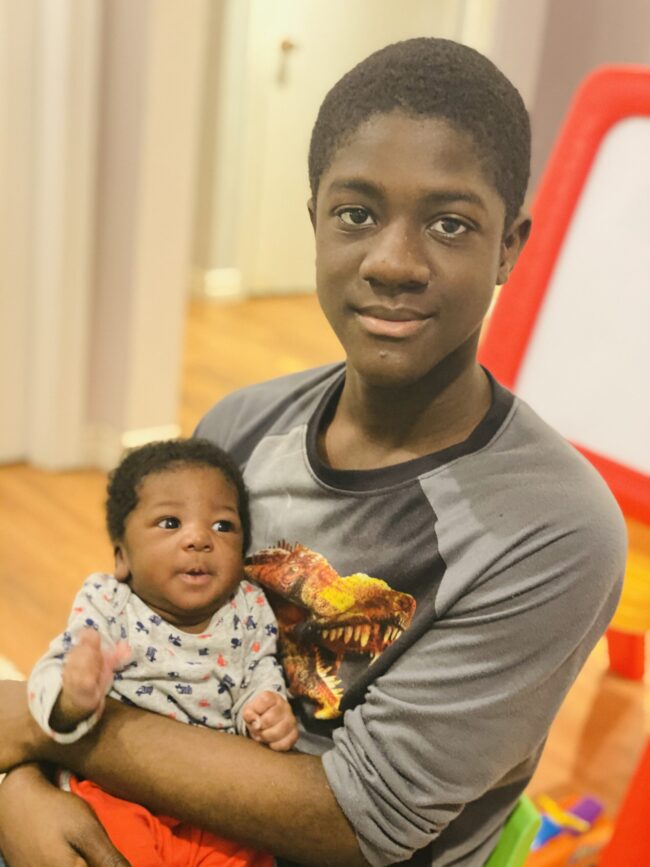
Family Foundations No One Lays Yet Everyone Needs
One of the most stupid things I’ve ever done is to travel 10 whole years into marriage before ever seeking formal post-marital counselling. After the several pre-marital sessions lasting many months in 2006, Anyele and I went in the power of that for a decade until we felt we needed further formal, external help. Why on earth did we do that?
Come to think of it, every 5,000 km or so we were changing the oil in our car and getting it serviced yet not so with our marriage. Doesn’t every marriage need regular marriage maintenance? Why wait till we’re sick before we see a doctor when we can at least do annual check-ups? In fact, I would say we came from a culture where seeing a counsellor connoted there was a pathology; and not so much a maintenance thing.
Friends, I’ve had several conversions since August 12, 2006 that have better aligned and further fortified what I thought were already ‘excellent foundations.’ Sometimes there’ve even been foundational cracks I’ve had to fix (and God knows I’m not done). For time to time I’ve come across new information that has caused me to repent, have a change of mind, and realign our foundations to keep this family building strong and lasting.
EXAMPLES OF FAMILY FOUNDATIONS TO REVISIT
Feel free to say “shame on you Yaw” but I had never heard of a family genogram until barely five years ago! How could such an important tool and exercise not have been part of our foundations when we set out a decade-and-a-half ago? And if you’re asking “what the heck is that?”, then trust me, you don’t even know you need one until you eventually discover it. Afterwards you would wonder how in the world your family had been surviving without one. I say ‘surviving’ because you will then notice that what you thought was ‘thriving’ wasn’t quite so.
Then there are basic tools for connecting with spouse and children on a deep emotional level we only received in the last five years. We learnt the 10/10 from the Pellmans and Temperature Reading from the Scazzeros. “Love your wife,” yes I want to. “Respect your husband,” yes she wants to. But how? The Kraemers also gave us tools for this.
And all this is for a good-looking couple who had a pretty solid family heritage, coming from a few generations of good Christian homes, being smart, leaders of our church youth fellowship who had lived virtuously and gotten married as virgins. We even themed our wedding “a celebration of purpose, passion and purity.” Alas! We who ‘had it all’ have realized there are family foundations everyone needs yet almost no one lays. The very marriage mentors who have been blessing us with these paradigms, praxes and practical tools are passionate about their ministry of marriage mentorship today precisely because they themselves didn’t have these when they were our age!
Family is a BIG deal. It is the basic unit of society, just like the cell is for all biological life and the atom is for all matter. Yet the thing about family foundations is this: just like finances, very little about how to make it work well is taught in school about it. If one isn’t fortunate to have a spiritual community that provides quality family life information and formation, you’re in a hard place. There are many divorces that are preventable, if the foundations could be reconfigured. There are some we’ve been able to help save by God’s grace; and others… well… too bad, too late.
THE MOST IMPORTANT PART
Few will argue against the assertion that the most important part of a building, or anything else that is built for that matter, say a marriage, is its foundation. A ton of things have been said about foundations. Gordon B. Hinckley asserts, “You can’t build a great building on a weak foundation. You must have a solid foundation if you’re going to have a strong superstructure.” Adding his voice, David Allan Coe says, “It is not the beauty of a building you should look at; its the construction of the foundation that will stand the test of time.” The greatest teacher of all time, Jesus Christ, classifies life builders into two categories, wise and foolish, purely based on thee foundations they lay: the foolish build on sand, the wise build on rock.
My beloved mentor Peter Scazzero talks about foundations a lot in the Emotionally Healthy Leadership paradigms he teaches. And no wonder, since like the typical New Yorker he is, Pete is ever so familiar with the skycraping towers of Manhattan. This is how he explains the importance of digging deep foundations if we are to build life’s tall towers of significance:
Manhattan consists almost entirely of bare granite, a very hard and strong type of rock. To carry the weight of a 75 or 100 story skyscraper, foundations known as “piles” are used. These are concrete or steel columns hammered into the ground with a massive crane until they penetrate solid rock.
Some pilings go twenty-five stories under the ground. The heavy weight of the skyscraper is then distributed through each of the deep “piles” in the ground below. Together they are capable of supporting the structure’s enormous weight.
If the pilings are drilled in poorly, cracks eventually appear in the structure. Entire buildings may lean. Then they must be torn down or lifted completely so the piles can be reset – a costly and time-consuming process.
FAMILY FOUNDATIONS MASTERMIND
As you might be aware from a previous blog, “a mastermind group (often shortened to just ‘masterminds’) is a peer-to-peer mentoring group used to help members learn together, solve problems, birth new ideas and gain clarity with input and advice from the other group members.” For eight weekly sessions, from April 4 to May 30, I shall be walking along with a dozen leaders who want to re-examine their family foundations and receive new paradigms, praxes and practical tools to finally fix faulty family foundations. Inputs will include several book chapters, videos, articles, practical exercises, discussions and debates. Two special features and benefits will be FREE membership of an online chest of over 20,000 resources and a FREE DISC Personality assessment with a 37-age customized report!
You can be sure that “mastermind groups are great in holding each other accountable for the goals and outcomes each member comes up with themselves” (see here). Outcomes and outputs of this particular Family Foundations Mastermind are as follows:
- Paradigm Shift on the Prime Place of Family
- Ancient Wisdom Applied
- Current Family Systems Theories Tested
- Practical Relationship Tools (for emotional connection, communication, forgiveness)
- Family Genogram
- Behavioural Assessment
- Emotional Needs List & Action Points
- Family Mission Statement
- Hierarchy of Priorities Configuration
- Integrated Life Exploration & Commitment
Register here and let’s go back to basics. Let’s finally fix faulty family foundations that everyone needs to but hardly anyone does.
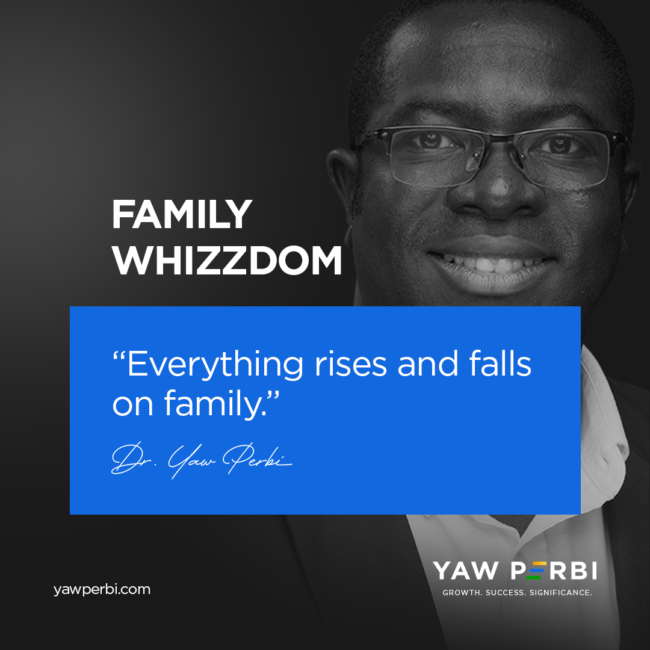
Everything Rises and Falls on Family.
My mentor likes to say, “Everything rises and falls on leadership.” This is true but there is something even more fundamental that all leadership itself rises and falls on. I say, everything rises and falls on family first. At least five reasons come to mind why:
1. CREATOR PERSPECTIVE | God is Family
“In the beginning, God…” That’s how the entire holy scriptures begin in Genesis 1:1. I have a theistic worldview as a bonafide African, and a Biblical one at that as an African Christian. My understanding is that everything is created by a Supreme God and that He created human beings in His image and likeness. That tickles my theological senses a lot because according to the Christian view, GOD IS FAMILY. At the centre of the universe is family–Father-Son-Spirit. At the core of cosmos is a love, relationship–Love, Lover and Love itself. Everything rises and falls on love, everything rises and falls on God, everything rises and falls on family.
Of course we could go into how God created the first family after declaring “it is not good for man to be alone,” how throughout scripture and history God chooses a person and their family to work through, the many scriptures that seek to protect, preserve and promote family etc. Even when God decided to wrap Himself in human flesh and move into our human neighbourhood in the person of Jesus Christ, he chose to implant himself in a family–Mary and Joseph’s. Everything rises and falls on family.
2. CRADLE PERSPECTIVE | Parents shape world shakers
Have you ever heard the proverb, “The hand that rocks the cradle rules the world”? That is 1865 wisdom unleashed on the world through the refrain of a William Ross Wallace poem that praises parenthood as the preeminent force for change in the world (see here). Of course, at the time it was written, nearly two centuries ago, the work of raising children was mainly seen as the role of the mother but we know all too well it takes two to tango. Both father and mother have a role in rocking the cradle, even procuring that cradle in the first place. Parents and the wider family, shape the people who would shake and move the world, for good or ill. These two PhDs Barbara Riggs and Cynthia Tweedell don’t mince words in their Marriage and Family textbook: “The strongest influence in your life will stem from family.” Period. Everything rises and falls on family.
3. CELLULAR PERSPECTIVE | Family is the unit of humanity
So yes, “it is the hand the rocks the cradle that is the hand that rules the world” but alas! today, everyone wants to change the world; no one wants to start at home. The irony! Not only does everything rise and fall on family because the hand that rocks the cradle rules the world but also the family is the basic unit of society just as the cell is the basic unit of biological life or the atom is for all matter. Yet somehow we think we can flourish in the corporate world, government and such without adequately addressing the lowest common denominator!
If you think one cell gone bonkers is no big deal think again about cancer. That’s all it is. Cells gone bonkers, multiplying unhealthily–and eventually spreading that craziness (metastasis). Sooner or later a whole monarch or president or parent dies, all because of a cell gone awry. Everything rises and falls on family, that one cell.
4. CALCULATION PERSPECTIVE | Hindsight is 20/20
Today’s C-level executive claims “It’s not the quantity of time but quality that I spend with my family that matters.” This is a fallacy. Family costs what it costs and it doesn’t go on sale! The question is if we are willing to pay the price.
Even for the richest and most popular of leaders, when they assess their lives, doing a calculation of all they’ve spent their talents and energies, time and finances on, the truth remains that, “There’s no one who on their deathbed has been heard to say, “I wish I had spent more time at work.”” What folks should’ve known first, they only find out last: Everything rises and falls on family.
5. COVID-19 PERSPECTIVE | The only place to be/go has been home.
When our all-important selves on our all-important endeavours were brought to a screeching halt by the latest Coronavirus pandemic, where did we all head? Home! When literally every economy and society locked down, where did we stay put and be safe: with family! I’ve never seen so many advertisements on primetime television asking people to stay home in my life! Heroes, according to the World Health Organization, stay home! Ha! Who would’ve thought that day would ever come!
Even high-flying pilots have been grounded, literally, at home. I haven’t flown in a year–that is crazy considering that there were times in the last few years when I did as many as 70 flights in the year! My VIP airport lounge passes and platinum airline and hotel statuses have been rendered useless. The only thing that has mattered most has been the people many of us paid the least attention to prior to COVID-19: family. Of course, some families have turned at each other and self-destructed because of the very forced proximity that should’ve been a blessing!
Crucibles reveal what’s most important. After this pandemic is over, we would need insignia to remind us, lest we forget, everything rises and falls on family.
THE MILLION DOLLAR QUESTION
So why then do many, too many, in our generation tend to put family on the backburner? What if we all invested in our families the same degree of seriousness we put into our professions or in climbing the corporate ladder? I’ve been amazed at how many C-level executives are executing vision and mission statements and strategic foci for their organizations but have not given a thought to forging a simple family mission statement yet alone execute it.
Granted, some people really want to give their families their best shot but they just don’t know how or don’t have the tools to. Since Anyele and I welcomed our seventh child into the world, we’ve had so many puzzles and questions thrown our way that we’ve decided to hold a free online session from time to time for various folks to share our hearts, heads (ideas) and hands-on stuff (skills) about family, theirs and ours! Would you believe after our first 2021 15 Laws of Growth Mastermind through January and February the one thing that made all these participating professionals vote for an extra/bonus Mastermind session, which I obliged to facilitate for free, was family?
In one of the quarters of each year, my coaching company will run a 60-day journey through powerful principles of family foundations in a paid mastermind group for healthy family growth, based on ancient wisdom, current family systems theory and practical tools that work! This will be targeted at C-level executives comprising weekly 90-minute online sessions for eight weeks with lots of readings, video clips, assignments, inspiration, encouragement and accountability throughout the weeks! Each week, a unique practical skill will be learnt to better our relationships.
Family: everyone has one–no matter how dysfunctional or atypical. Even if we don’t form one of our own (family of procreation), everyone comes from one (family of orientation) that we didn’t choose. I confess that being a very goal-oriented, high achiever myself, I never thought the day would come when I would see and treat family with the sort of ‘first placeness’, centrality and reverence I have for it today. Perhaps if others also had a paradigm shift that everything rises and falls on family, everything would change too.
What do you think?
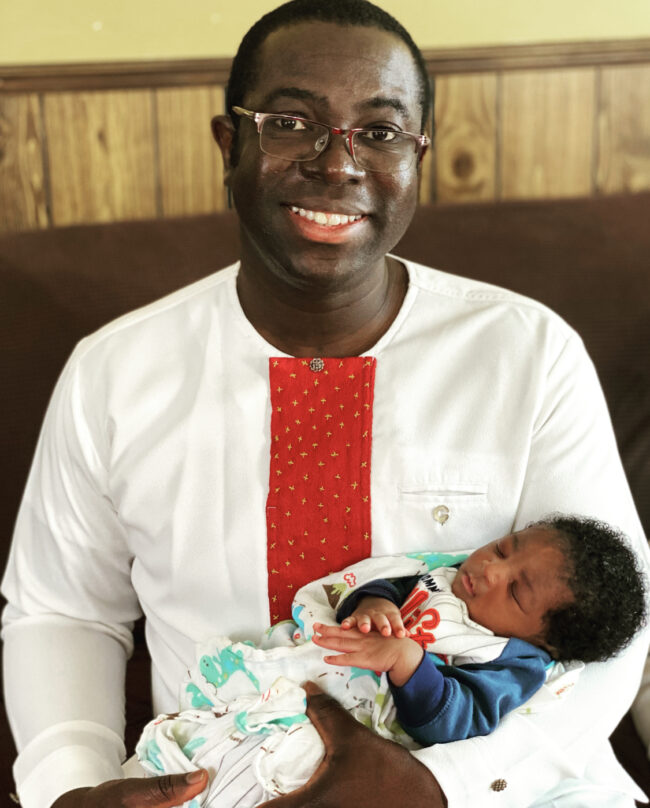
Born in the Month Ghana was Birthed, Nii Ajorwor Ampa Perbi is here!
It is always an honour to get to name someone or something, especially a seventh biological child. The historic and prophet names of the other children have been explained in the past here.
Our seventh, and final, child was born on March 2, 2021 at the Jewish General Hospital in Montreal, Canada. In accordance with our Akan (Yaw’s) and Ga (Anyele’s) traditions of Ghana, we named him on the eighth day, the same day of his birth, Tuesday, a week later. Like all his siblings before, the 3.895kg champion, whose 54cm height excited the obstetric staff because it’s over the 97th percentile, has been given a name pregnant with historic and prophetic meaning. And his name shall be called NII AJORWOR AMPA PERBI. Here’s what each given name means:
NII
All the older six siblings are called Nana, an Akan title meaning prince(ss) and also signifying God as King. Nii is the Ga equivalent of Nana.
AJORWOR
Over a dozen years ago, with inspiration from the life of the patriarch Abraham we felt called out of Ghana: “Go from your country, your people and your father’s household to the land I will show you.” So we did, leaving a great life in Ghana to start from scratch in Canada. The commission came with a commiserate blessing though: “I will make you into a great nation, and I will bless you; I will make your name great, and you will be a blessing. I will bless those who bless you, and whoever curses you I will curse; and all peoples on earth will be blessed through you.” (Genesis 12:1-3)
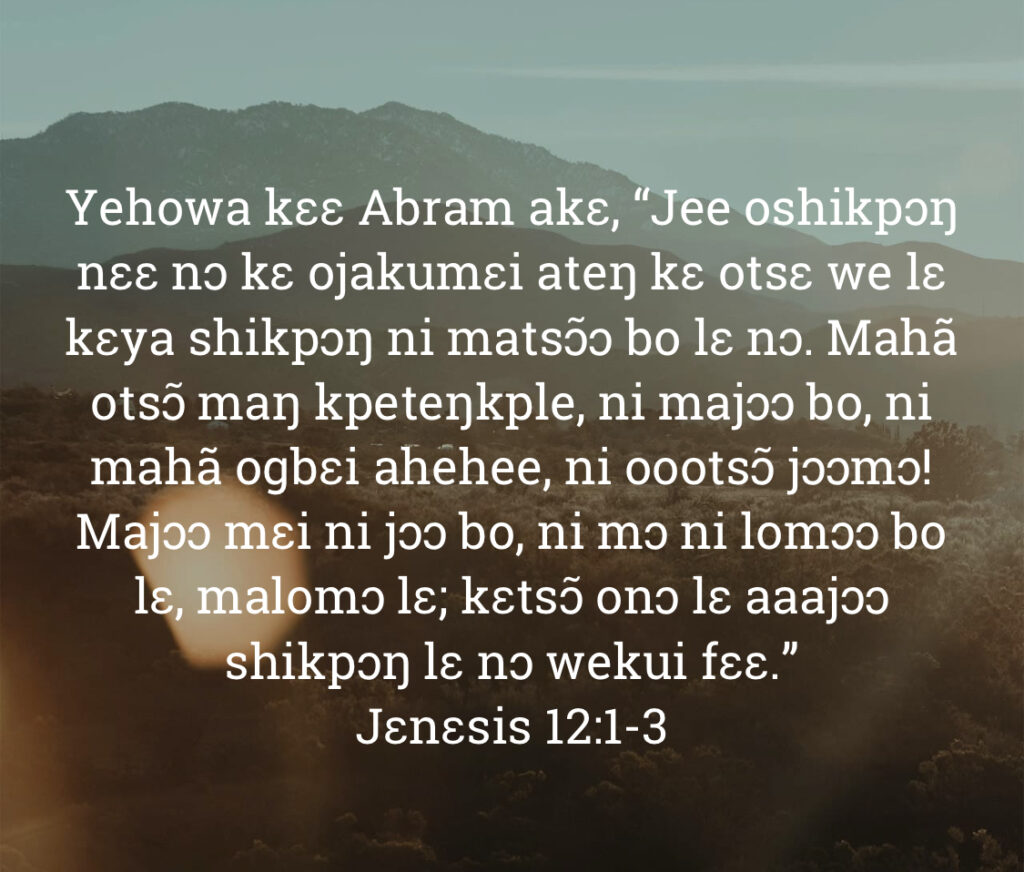
The Ga version of Genesis 12:1-3. You see a variety of renditions of blessing (jormor–anglicized): major (I will bless), aaajor (be a blessing)
It’s been nearly a decade-and-a-half since our being called and sent forth and we feel we’ve really and truly been blessed by the LORD in every sphere of life–physically, spiritually, socially and academically (which was the original door open in Canada). Ajorwor means “we’ve been blessed” or in context, “God has blessed us!”
And we are blessed not just qualitatively but quantitatively too! We had one child at the time of the promise, now we have seven times the number of children! Every child is a blessing, a reward, a heritage from the LORD and an arrow for waging life’s battles and extending the glory of the Kingdom of God on earth as it is in Heaven. Indeed our quiver is full, and the Psalmist says we are blessed for having a quiver full of arrows!

Ajor nuu means “blessed is the man,” but we say ajor wor, “blessed are we all,” for having a quiver-full of sharp arrows
AMPA
Ampa is the baby’s maternal grandfather. When we felt it would be appropriate to name our last child after this noble man we didn’t know Nii Ajorwor would be born so close to Ghana’s Independence Day, March 6. You will soon understand the significance of this. Initially called Kwame Patterson, great grandpa changed his name to Nii Ampa Sowa. He left to study Industrial Management at Leeds Polytechnic, United Kingdom, in 1958, a year after Ghana’s independence from British colonial rule.
Asked by his cousin Ebenezer Ako-Adjei, one of the ‘Big Six‘ founders of Ghana, to come back to help him run his Ministry (Foreign Affairs), he returned to Ghana and became his Personal Assistant in 1960. In 1963 when Ako-Adjei was arrested in a political frame-up, Anyele’s grandfather was arrested too. He was released from Usher Fort and Nsawam prisons after six months detention. He left the civil service.
In 1965, he joined Parkinson Heward (builders of the Tema industrial municipaity) as a bookkeeper. In February 1966, when there was the coup d’etat by the National Liberation Council that ousted Kwame Nkrumah’s government, Parkinson Heward was asked to leave the country. He vowed never to join politics again… hence Anyele’s dad’s aversion to politics! Nii Ampa Sowa passed away in 1980, while Anyele’s dad was pursuing his graduate studies in Canada, where Anyele was born.
THE BLESSING
Interestingly, Ajorwor (“we are blessed”/”we’ve been blessed” in Ga) combined with Ampa (“true” in Akan), Ajorwor Ampa means “truly blessed!” So we have been blessed indeed; but blessing is a mountain with no peak. There’s so much more where these blessings came from and we trust that Nii Ajorwor not only represents blessings past but is a divine sign and a symbol for many more blessings to come to our Perbi family and through us, to all nations! Welcome, Nii Ajorwor Ampa Perbi! Akwaaba!
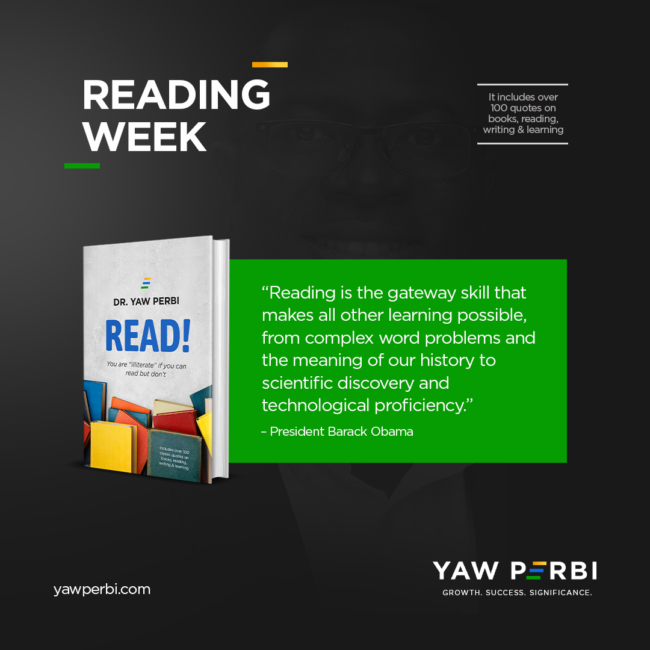
I Used Not To Like Reading. Two Statements Changed Everything.
I wouldn’t be where I am today but for books. I mean precious books like the Holy Bible (which I’ve read cover-to-cover about 10 times), Rich Dad Poor Dad (Robert Kiyosaki), The 7 Habits of Highly Effective People (Stephen Covey), The Purpose-Driven Life (Rick Warren), Before You Say I Do (Yaw Boamah), The 21 Irrefutable Laws of Leadership (John Maxwell), The E-Myth (Michael Gerber), The Prayer of Jabez (Bruce Wilkinson), Create Your Own Future (Brian Tracy), The Emotionally Healthy Leader (Peter Scazzero) etc. My life five years ago is totally different from my life now—and so was my life five years prior to that totally different—just because of the books I’ve read.
Consequently, for a decade-and-a-half now I’ve been a serious reading campaigner. Now, not only have I grown further fierce in campaigning for people to love reading, my wife and I have stepped up by stepping down. What I mean by that is, we’ve enhanced our campaign but decided to go further down to the age where humans are most pliable: childhood. And we began with our own seven children. This is the philosophy behind Perbi Cubs Library Services. You may find the story behind Perbi Cubs here.
But being a reading enthusiast, let alone champion, hasn’t always been so. I used not to like reading, at all! Then two statements hit me hard and totally shifted my paradigm, absolutely altering my way of thinking.
THE ‘RACIST’ & ‘TREMENDOUS’ STATEMENTS THAT CHANGED EVERYTHING
The first statement, I randomly encountered on the internet. I was but a youth then. As I confess in my book READ!, “I was so angry my intestines could have gushed out. If I were light skinned my face would’ve turned tomato-red instantaneously. Yet deep, very deep down my heart I knew there was a truth in this almost racist statement glaring at me from the computer screen.” This is what it said: “THE BEST WAY TO HIDE SOMETHING FROM BLACK PEOPLE IS TO PUT IT IN A BOOK!” Ah! Upsetting! Yet in many ways this is true, I’m ashamed to admit: We don’t read!
The other paradigm-knocking statement was Charlie ‘Tremendous’ Jones’ rather prophetic pronouncement: “You will be in five years where you are today except for the people you meet and the books you read.”
These two statements turned my life around to not only become a voracious reader and prolific writer, but an advocate of the same!
WHAT IS READING?
We all have read (or even still reading even right now) academic or technical texts to pass an exam or for promotion, for professional growth etc. That is not what I mean by my read campaign. When I speak of reading I mean leisure reading. Also known as “recreational reading, pleasure reading, free voluntary reading, and independent reading,” it is “independent, self-selected reading of a continuous text for a wide range of personal and social purposes. It can take place in and out of school, at any time” (International Reading Association).
Samuel Johnson shares the following sentiments: “A man ought to read just as inclination leads him; for what he reads as a task will do him little good.” I get him. Leisure reading must be voluntary and pleasurable–not just a chore–if it is to benefit us maximally.
WHY MANY ARE SCHOOLED BUT STILL “ILLITERATE”
Several of us who have learnt “ABCD…” and can practically function simply do not read. In my book READ!, first published in 2005, here’s my thesis: If you know how to read and you don’t, you are no different from the illiterate! The bottom line is the same: you both don’t read! That’s why the subtitle of the book is “You are an “illiterate” if you can read but don’t.” Many years ago Mark Twain put the same idea this way: “The man who does not read good books has no advantage over the man who cannot read them.”
CONCLUSION
If it’s any comfort to you, a guy who used not to like reading today reads several books at the same time! Even further, I’ve acquired this new habit of writing several books at the same time too! Something you need for your future to happen is hidden in a book near you. As they say at Perbi Cubs, “success is just a book away.” And it’s true. If you don’t believe Perbi Cubs or Charlie ‘T’ Jones, take it from me.
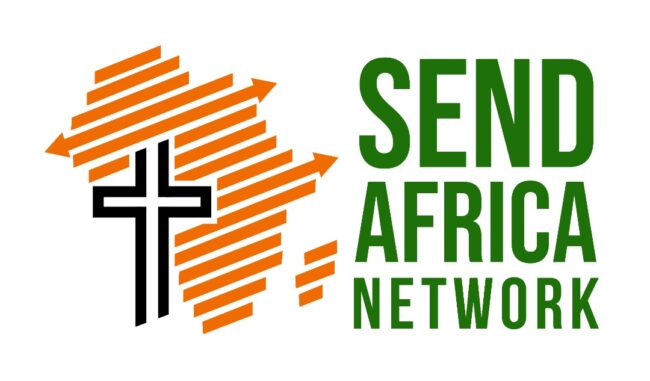
Black History Month | Africa Leads the World
There is no talk of Black History without faith, especially the Christian faith. PBS recently released a fascinating Henry Louis Gates Jr. documentary on the Black Church. What some dubious people tried to oppress and suppress black people with became the very thing that liberated us and is now giving us a global leading edge.
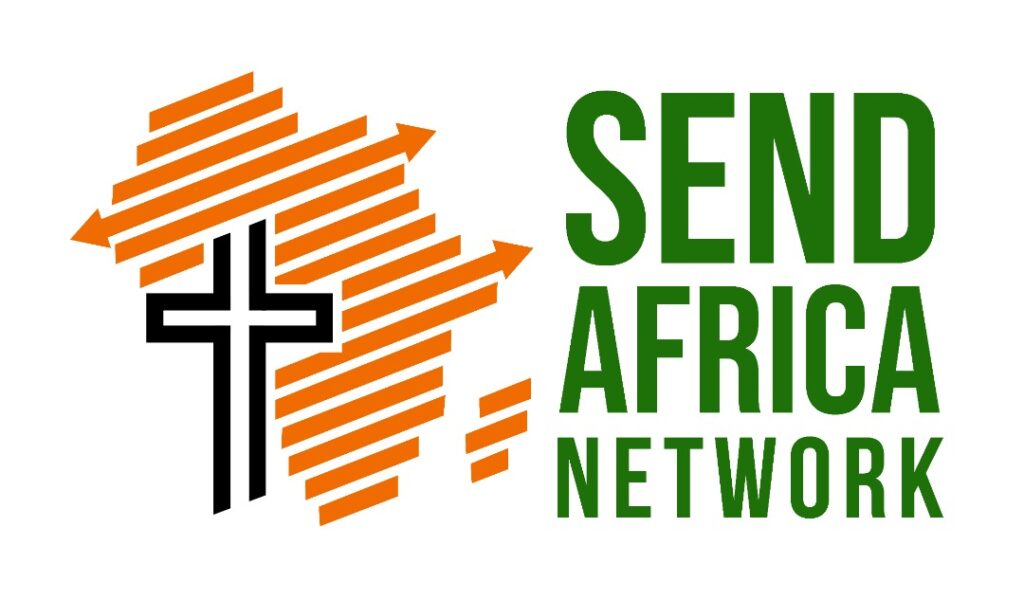
Send Africa is an evolving missions network whose DNA and launch YAW PERBI is privileged to help shape and midwife
Africa is the most Christian continent in the world today. The year 2018 was the first in history where there were more Christians in Africa than on any other continent in the entire world! (Johnson 2018) THIS IS A BIG DEAL!—this is a one-thousand year record held by Europe that has been broken by Africa in our lifetime. That makes me super excited about Black History Month this year because history is being made right now. As you read this, a number of continental Africans and those of African descent in the diaspora have synergized to birth a new network known as Send Africa to promote further faith formation among ‘unreached people groups’ around the world.
At the formal launch of this Send Africa Network online on February 24-25 during this 2021 Black History Month, my Kenyan friend, Sam Ngugi, and I will be launching a ground-breaking book entitled Africa to the Rest to celebrate this huge feat of Africa becoming a leading global force of faith to the rest of the world. This book is to “celebrate this momentous occasion in world history that has been inadequately highlighted by mainstream missions and missions. It traces some of God’s goodness to Africa in the Bible and throughout history until now to make clear that Africa and Africans have been central to God’s missional purposes; not an afterthought.” You may register for the Send Africa Summit here.
CAPTURED & DISTORTED HISTORY
Of course Africa features in the Bible from start to finish. There were actually two black guys (among the five) that played hands on the apostle Paul and commissioned him on his missionary journeys (Acts 13). Africa is the cradle of monasteries and ecumenicsm. The term Trinity came from Tertullian the Tunisian. St. Augustine was from Algeria, and not a European as we were made to believe growing up in Africa.
As Sam and I state in our book, “People consider Christianity as the white man’s religion to oppress the African due to the last 500 years of Euro-American missionary activity mixed with colonialism without realizing that the first 500 years A.D., Africa was so synonymous with Christianity that one of the most common terms for Christians in Arabic sources is afariqa–indicating a significant degree to which “Christian” and “African” were synonymous concepts (Merrills 2004, 303).”
In fact, the subtitle of our book is “from mission field to mission force (again)“ because Africa(ns) as a mission force first impacted Europe with the Gospel! That notion that Africa first evangelized Europe is the essence of Thomas Oden’s book titled How Africa Shaped the European Mind. “My core hypothesis,” Oden himself says, “is that much intellectual history flowed south to north: from Mumidia to Sicily to France and Italy. It flowed from the Nile to the Euphrates and the Danube. It flowed from Pelusium to Gaza to Cappadocia. …There is ample evidence available that the seeds of African orthodoxy have been lifted by high winds to distant northern climes. Only much later have they returned to Africa in a Western guise.”
Only a century ago, at a world missionary conference in Edinburgh, not only was there no continental African there as a delegate, we were described as “heathen” in need of being saved. Today there are more Anglicans in Kenya than in England. At the time, the continent had 9 million Christians while Europe was home to 406 million. Today, Africa has over 630 million Christians, a clear 30 million more than Latin America in second place with Europe in third place with 571 million Christians. And it’s not a nine-day wonder, for by 2050 (Deo volente), there will likely be more Christians in Africa (1.25 billion) than in the next two continents combined! (Johnson 2018)
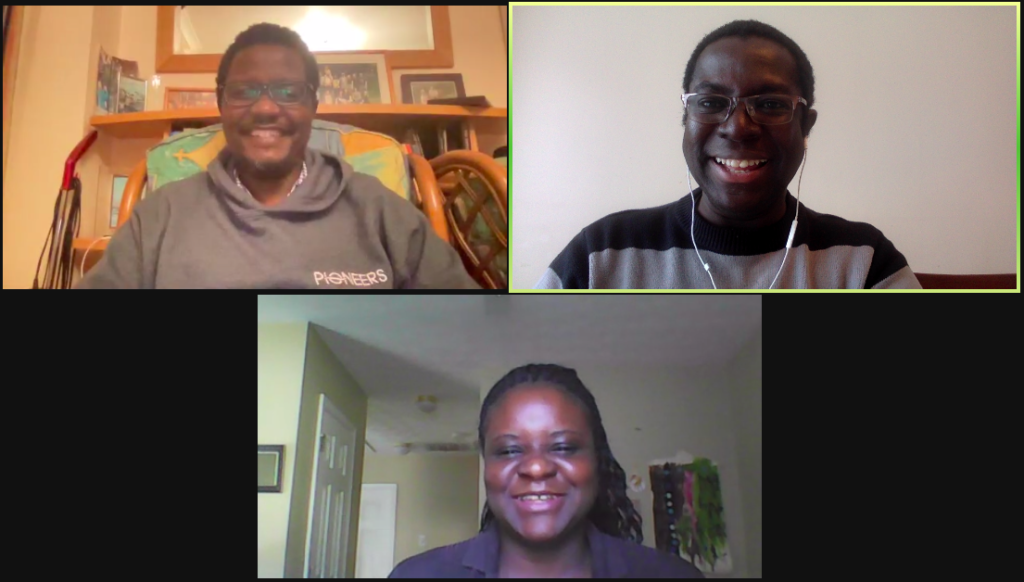
The all black ‘Africa to the Rest’ team of two writers and an editor on a Zoom call from Canada, the USA and England
UNDENIABLE PRESENT
It is good to know that Africa leads the world in something. There are churches that began in Africa and are in 198 countries now. The largest congregations in Europe are pastored by Africans, like Sunday Adelaja’s in Kieve, Ukraine. The most multinational congregation in the world—108 nationalities—was founded by and pastored by my good friend and mentor in Vancouver, Canada, Dr. Sam Owusu. I could give you a list of about 10 global mission organizations–including the Navigators, SIM, Langham Partners and SIL–currently led by Africans!
Why is all this important? For many reasons but three will suffice for now. First, black people have been part and parcel, even central, to the purpose and mission of God unlike others have tried to make us think. We are equally made in the image and likeness of God as anyone else. We ought to rejoice and while not bragging about ourselves, ‘make our boast in the LORD.’
Secondly, the Christian faith is authentically African. As one scholar put it, Christianity is a beggar looking for clothes in whatever culture it goes into. The fact that it was captured by Europeans and Americans and tailored as a tool of oppression of blacks in slavery, colonialism etc. is simply not right (not the authentic Christian faith) and doesn’t make the faith the preserve of the white man either.
Finally, the business world and other sectors in Africa that are trying to make a mark on the world stage could learn a thing or two from the African Church that leads the world in faith today, hands down.
THE FUTURE HAS COME
I come from a long and rich family history of black (hi)story tellers. My grandfather was an emeritus professor of ethnomusicology and my mother is a professor of history with a specialization in the slave trade. I feel privileged to take my turn to tell stories of African leadership, and in this particular case, leadership in faith, church and missiology.
The assassinated Congolese nationalist leader, luminary and first Prime Minister of the Democratic Republic of Congo, Patrice Lumumba, must be smiling in his grave that the day he prophesied is here: “The day will come when history will speak. But it will not be the history which will be taught in Brussels, Paris, Washington or the United Nations… Africa will write its own history and in both north and south it will be a history of glory and dignity.” The day has come!
For those of no faith and saying to themselves “who cares if Africa is the most Christian continent?” because we’re yet to see it tell on our socioeconomic indicators or the millennium development goals, just you wait. Works soon follow faith. Unless it’s not true faith; because faith without works is dead.
References
Johnson, Todd M., Gina A. Zurlo, Albert W. Hickman, and Peter F. Crossing. “Christianity 2018: More African Christians and Counting Martyrs.” International Bulletin of Mission Research 42, no. 1 (January 2018): 20. doi:10.1177/2396939317739833.
Merrills, A. (Ed.). (2004). Vandals, Romans and Berbers: New Perspectives on Late Antique North Africa (1st ed.). Routledge, 303. https://doi.org/10.4324/9781315235127
Oden, Thomas. 2007. How Africa Shaped the European Mind, Downers Grove: InterVarsity Press, p.71.
Perbi, Yaw & Sam Ngugi. 2021. Africa to the Rest: from mission field to mission force (again). Forthcoming. Xulon Press.
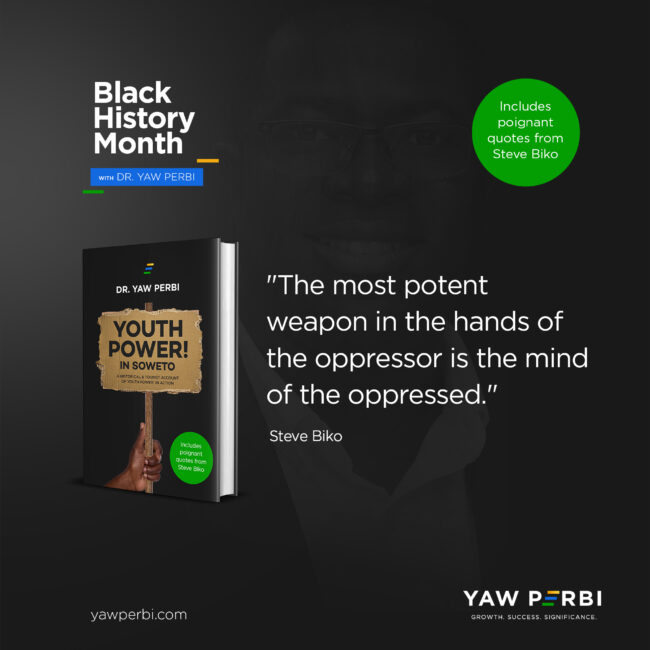
Black History Month | Why the Protests of 2020 Had a Sense Déjà Vu About Them
Here is the entire preface to the 2020 version of YouthPower! in Soweto for your enjoyment and edification. This book was first written 15 years ago upon a life-transforming visit to South Africa in 2005. The anti-racial protests in 2020 were like a 1976 déjà vu and inspired me to get this re-release going for today’s generation to remember and soldier on.
“It is better to die for an idea that will live,
than to live for an idea that will die.”
Steve Biko
The Definition of Black Consciousness, I Write What I Like, 1978
It is 2020. The pandemic year. The epochal events of this year, on both sides of the Atlantic, have had such significant parallels with the youth uprisings and protests in apartheid South Africa in 1976 that after procrastinating the republishing of this book for years I finally got the umph to do it.
“Police brutality.” “Systematic racism.” “Peaceful protests turned violent.” “We are dealing here not with a spontaneous outburst but with a deliberate attempt to bring about polarisation between whites and blacks.” “This government will not be intimidated and instructions have been given to maintain law and order at all costs.” Do any of these phrases and sentences sound familiar? Yet these are not from 2020; these are all 1976 words and phrases!
With the world slowed down, even locked down, we all had the time and bandwidth to take in the slow slaughter of an American young man, George Floyd, by those paid “to serve and protect” him. The aftermath of #BlackLivesMatter protests in the United States and around the world seemed like a coordinated tsunami. Perhaps no other year has there been more concerted protests against police brutality, systematic racism and no-nonsense towards anything or anyone glorifying an apartheid, segregationist, slavery or colonial past.
At a point, the confluence of 400th year anniversary of the first slave setting foot in America, a plague (COVID-19) and protests by the oppressed made me wonder if this was not a modern replay of the biblical Exodus, the liberation of Israel from Egypt.
Then just when things seemed to be settling down, #endSARS happened. Nigerian youth wouldn’t take the brutalization of their kith and kin anymore either. The well-organized air war (via social media) and on-the-ground protests did result in the dissolution of the notorious Special Anti-Robbery Squad (SARS) that had been unleashing untold mayhem on the Nigerian people, especially youth, for years. Some paid the ultimate price for daring to express their Youth Power! May they rest in peace. May their death bring life.
In all the standing up to, shouting out and marching against, the core demographic has of course been Young People. Youth Power! at work again; just as in 1976. In fact, my favourite picture of the 2020 protests in the U.S. so strongly correlates with a scene from 1976 although both events are seas and decades apart. On the streets of America in 2020 the youth held placards that read, “We are not our ancestors. We will fuck you up.” In Soweto, 44 years earlier, the youth had asserted similarly, “Our parents are prepared to suffer under the white man’s rule. They have been living for years under these laws and they have become immune to them. But we strongly refuse to swallow an education that is designed to make us slaves in the country of our birth.”
It seems to me that like the Boomer generation of 1976, the Millennial, Gen Y and Gen Z generations alive and kicking in 2020 have also taken seriously their mandate to leave the world better than they found it. “You see things; and you say “Why?” But I dream things that never were; and I say “Why not?”” [said a certain wise man]. I believe that was the Youth Power! mindset in 1976, replayed in 2020. Here’s to celebrating Youth Power! from Soweto to Minneapolis to Lagos to the ends of the earth.
POST SCRIPT
I am humbled by my very rich family history of Black story-telling. My grandfather, J.H. Kwabena Nketia, was an emeritus professor of ethnomusicology whose lifework was dedicated to documenting the songs and drum language of African peoples while my mother, Akosua Adoma Perbi, is a professor of history with a specialization in the slave trade, indigenous and trans-Atlantic. It seems my turn has come to continue a family tradition.
I can understand those in my generation who feel Black people are too yesterday-focused and are pushing for this month to be Black Future Month instead of Black History Month. A word of caution though: we must know our history well–although not dwell in the past–if we are to be and do today what will make our tomorrow better than yesterday. As a wise man once said, “Those who do not learn history are doomed to repeat it.” 2020 has proven that history tends to repeat itself.
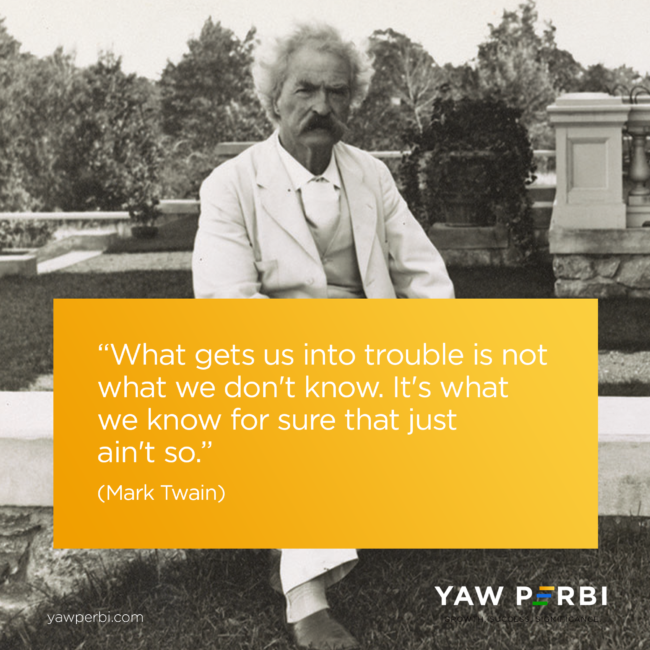
A Way to Prevent Heartbreak: Clarify Expectations
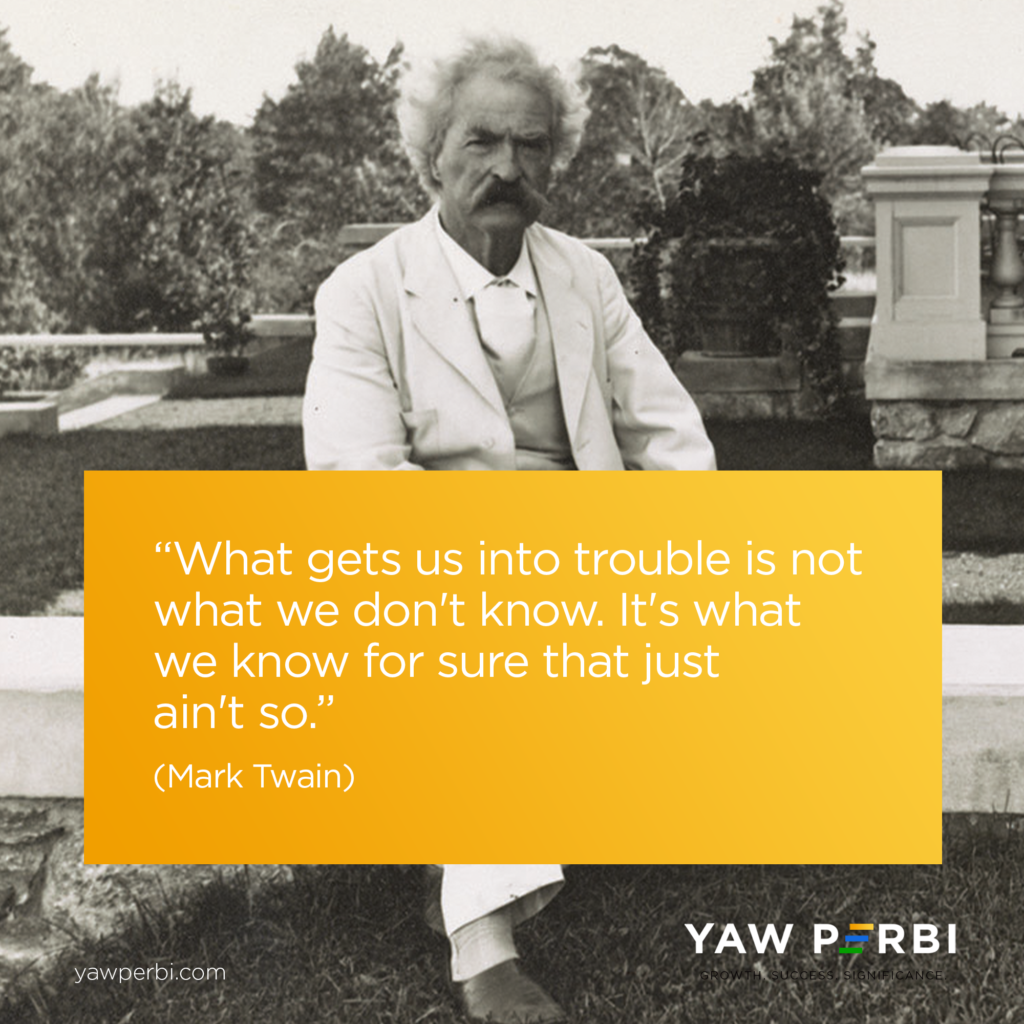
While what you don’t know may kill you; what you think you know but really don’t may kill you faster!
I have wanted to talk about this for months–how to prevent unnecessary hurt from unmet expectations–but last week an incident happened with one of my associates that really catalyzed me to share this urgently. So let’s talk about unmet expectations.
Whether it’s between spouses, parent and child, boss and workers or even among co-workers, family folk and church members, this is quite a common occurrence. This is particularly so African, Chinese, Japanese and Korean cultures that employ indirect communication. If you’re like me, you’ve probably been hurt before by unmet expectations. In fact, sometimes we don’t even realize we had an expectation until it was not met!
Mark Twain once said, “What gets us into trouble is not what we don’t know. It’s what we know for sure that just ain’t so.” We tend to have expectations that are unconscious, unrealistic, unspoken and unagreed upon. Let me share how you can flip these four things around and protect your heart against heartbreaks from unmet expectations. I owe this life-saving lesson from my New Yorkan mentors, Pete and Geri Scazzero.s
THE MILLION DOLLAR QUESTION
How do you know your expectations are valid or not? As hard-to-take as this may seem, when the expectation is unconscious it is invalid. In fact, if even we don’t even know we have them until we are disappointed how on earth is the other person supposed to know and meet it? When it is unrealistic it is invalid as well. Even if it is reasonable and we are conscious of it but it has not been articulated, it is still invalid. The common lame excuse we tend to give is, “Oh, but they should know?!”
In the event that our expectations meet all the above three criteria–conscious, realistic, spoken–but the other party has not agreed to them, they are still invalid. While this may seem very Western, I have learnt as an African-Canadian that it is never wise to assume agreement!
Of course, important caveats include marriage (where the vows already spoken have created certain clear expectations like fidelity), parent-child relationships (expectation of chores) and employer-employee dynamics where expectations have been clearly laid out in contracts and policy and supposedly read and accented to. Even in these relationships with broad-stroke expectations, situations occur that demand clarifying expectations further.
WHAT TO DO TO FORESTALL HEARTBREAKS
To prevent heartbreaks from unmet expectations, ensure your expectations are:
(1) Conscious: I am aware of my expectation.
(2) Realistic: I have evidence to support that the expectation is reasonable in the sense that the other is able and willing.
(3) Spoken: I have expressed the expectation clearly.
(4) Agreed Upon: The other person has agreed to the expectation by saying “yes.”
I would highly recommend you take the Scazzero’s Emotionally Healthy Relationships course for a full meal and good skill-building in this area they call Stop Mind Reading and Clarifying Expectations.
WHAT TO DO WHEN HURT HAPPENS
In the event that hurt still happens from unmet expectations, valid or not, REFRAMING the painful experience is everything. As John Maxwell renders it in the Law of Pain, “good management of bad experiences can lead to growth.” Reframe the painful experience as follows (modified from a Maxwell process):
a) Define the problem –> The painful situation I need to process right now is…
b) Understand your emotion –> My feelings about this are…
c) Articulate the lesson –> My lessons in is this are…
d) Identify a desired change –> The changes I want to effect are…
e) Brainstorm numerous pathways –> The ways out are…
f) Receive others’ input –> What I’m learning from others is…
g) Implement a course of action –> My course of action is 1. Embrace the reality of pain 2. Learn my lesson(s) 3. Share my lessons 4. Change a. ______ b. ______ c. ______ d. _____.
CONCLUSION
You know what they say happens when you assume: you make an ass of u and me. An expectation is only valid when it is mutually agreed upon. Let’s do less heart damage by providing and demanding clear expectations of others. Let’s ensure in all our relationships that our expectations are conscious, realistic, articulated and agreed upon. And when things fall through the cracks and we feel the sting of pain from unmet expectations, let’s reframe the experience well so we can still grow and flourish.

